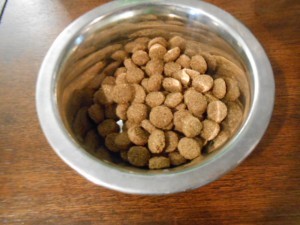DOG FOOD ALLERGIES EXPLAINED BY YOUR CARMEL VET CLINIC
At my Carmel vet clinic, I see a lot of dogs and cats with itchy skin disease. And even more people with questions about pet food. If you walk into a pet store these days, you would think that every single dog has food allergies. Pet food allergies do occur and are the third most common reason dogs will itch, but please seek your veterinary advice from your Carmel vet clinic, not a pet store employee. Many things can cause cats and dogs to scratch, lick, chew, and bite. Just because your pet has itchy skin, does not mean that the food is necessarily to blame.
So what are dog food allergies? Dog food allergy can develop to almost any protein or carbohydrate component of food. It most commonly develops in response to the protein of a particular food origin. Beef, pork, chicken, and dairy proteins are commonly associated with food allergies in dogs. Pet food allergies can develop at almost any age, but usually develop at a young age and are more common in large dogs like Labs. Dog food allergies usually cause itchy skin with red skin rashes and secondary skin infections. Dog food allergies sometimes may produce other clinical signs besides itching such as digestive disorders and respiratory distress. Food allergy may occur in conjunction with other types of allergies too.
How do you treat dog food allergies? Food allergies do NOT respond well to anti-inflammatory steroids or other medical treatments. Many over-the-counter foods claim to by hypoallergenic but are NOT valid in diagnosing and treating food allergies in dogs and cats. There is no reliable blood test for food allergies in dogs. Diagnosis of dog food allergy requires EXCLUSIVELY feeding a prescription hypoallergenic food for a trial period of 2-3 months. It must be emphasized that if the diet is not fed exclusively, it will not be a valid test. All table foods, treats, vitamins, rawhide chews, etc… must be discontinued during the food trial testing period. There are two different types of foods that can be used for a food trial. A novel protein is different protein source that your dog has never eaten before. The other is a hydrolyzed protein source. These diets have the protein source broken down so the body still receives nutrition, but the immune system does not recognize it as an allergen. If a positive response and improvement of your pet’s clinical signs occurs, your Carmel vet clinic will advise you on how to proceed in treating your dog’s food allergy.
If you think your dog has a food allergy, click on this link to our Caring Hands, Compassionate Hearts Carmel Vet Clinic.







